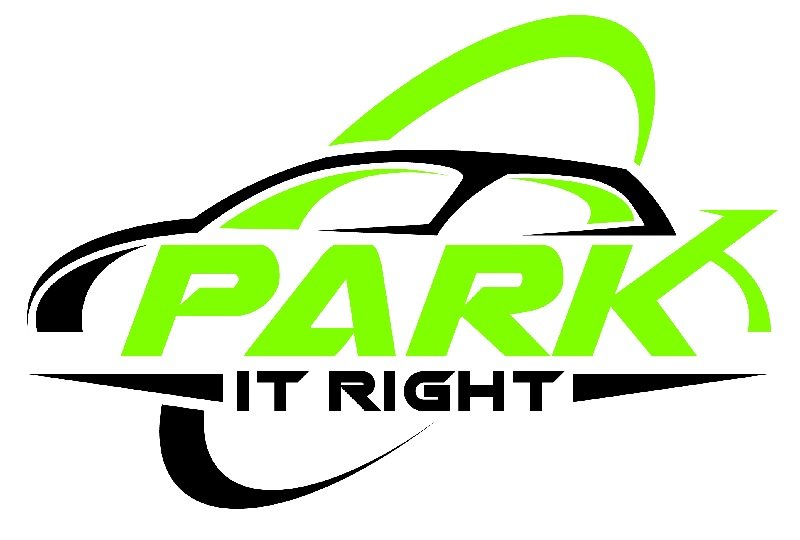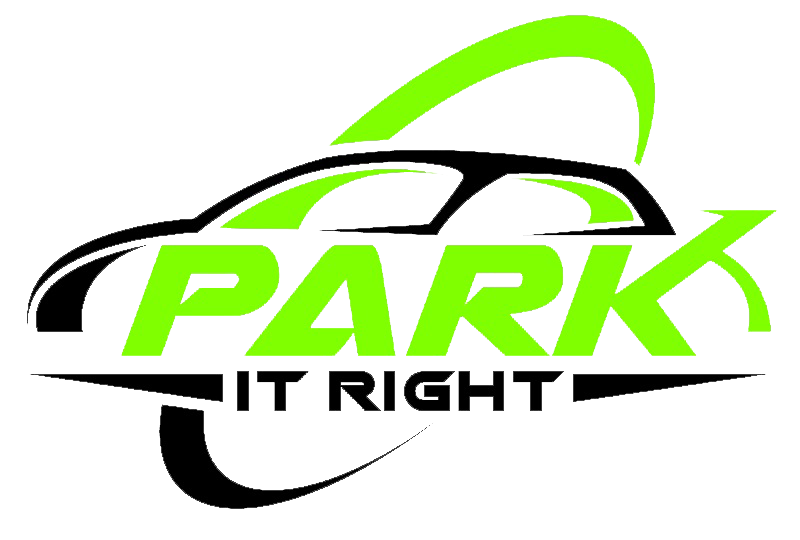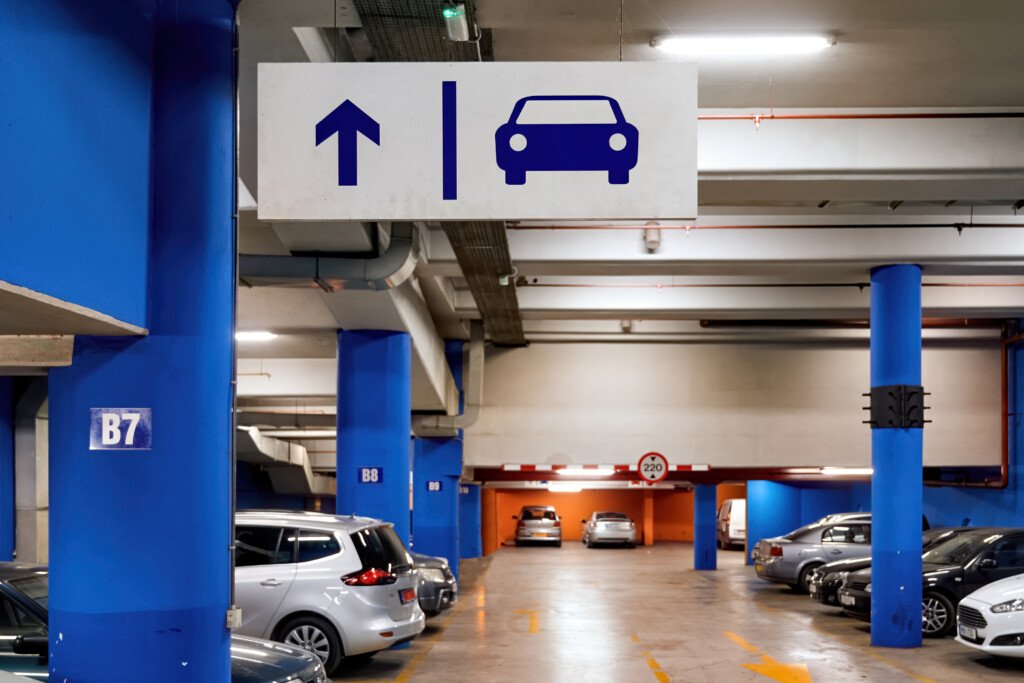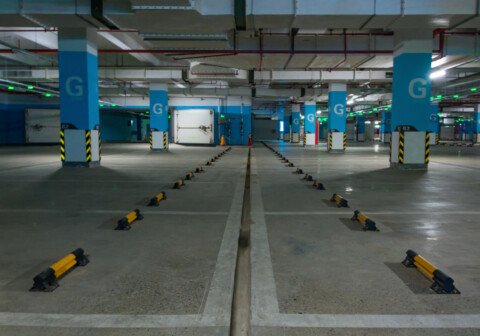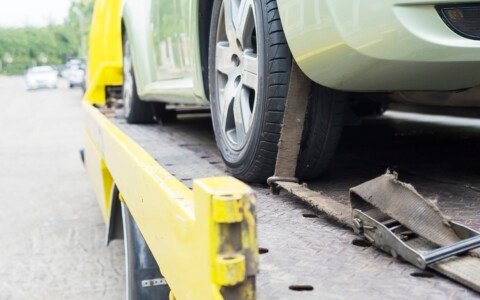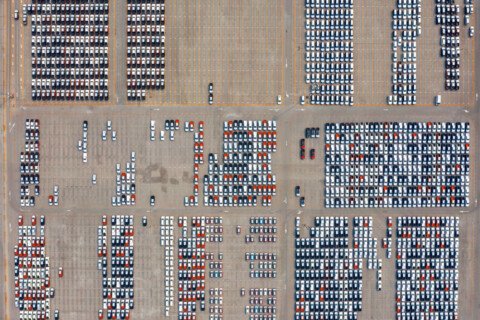| Colorado Department of Regulatory Agencies Public Utilities Commission In re the Matter of: The Proposed Rules Regulating Vehicle Booting Companies, 4 CCR 723-6 | COURT USE ONLY |
| Attorney or Party Without Attorney (Name and Address): Brian DeBauche Esq. for Parking It Right LLC. Law Firm of Brian DeBauche, L.L.C. 401 Kalamath Street Denver CO 80204 Phone Number:(303)571-5023 E-mail:debauchelaw@comcast.net FAX Number:(303) 571 5043 Atty. Reg. #: 28593 | Docket: 19R-0485TR |
| EXCEPTIONS FILED BY TOWING DONE RIGHT DBA PARK IT RIGHT | |
COMES NOW, as an interested party, Park It Right LLC, by and through this counsel, Brian DeBauche Esq. and the Law Firm of Brian DeBauche LLC, submits the following exceptions to the Commission’s proposed adoption of the Administrative Law Judge’s recommendation on the regulation of Vehicle Booting Companies; and requests rehearing or reopening of evidence, and reconsideration of the recommendations. See, 723-1:1506.
I. Generally, the vehicle immobilization industry should not be considered a public utility.
Towing Done Right, (hereinafter PIR) points to the enabling legislation in this case as a demonstration of the limited scope of most regulations pertaining to vehicle immobilization. It is not the purpose of this particular regulation to preserve health or safety of Colorado citizens, as no reasonable argument can be raised that vehicle immobilization endangers either. The purposes involved in this regulation would be preservation of welfare, and property of the public. The regulations should be narrowly construed, as any regulation of the impound industry will not flow from the purposes given in the original authorizing legislative acts for towing carriers. NOPR Sec. I(A).
Regulations under the Commission’s rules for towing do not fit the vehicle immobilization industry well.
The representative body of interested parties, notified directly of the notice of public rule and setting of the public hearing, are 99% towing industry representatives. The industries are strong competitors, not cooperative entities or even co-interested parties. The Commission mistakenly assumed the towing industry would represent the interests of this entirely independent area of commerce. As attachments to these Exceptions will show, nothing could be farther from the truth. The ALJ order expressly recognizes this in paragraph eleven of the Order. The dynamics of this industry are also directly in conflict with the towing industry and its economic drive to remove vehicles from lots, at far higher cost to consumers. The efficiency and low impact of vehicle immobilization as a parking enforcement alternative is attractive to apartment management companies, but directly replaces the contracts with the towing industry.
The current order is also unreasonably limited to ‘vehicle booting companies’. Order, at 13. The rules at 6811 should be changed to reflect actual available technologies in vehicle immobilization. Vehicles can be immobilized in any number of ways, including use of the “Barnacle” on a windshield. Immobilizers are not limited to wheel-locking devices. The regulations considered by the Commission do not touch this entire approach to vehicle immobilization. The current definition under C.R.S. 40-10.1-101(22) does not define what devices can be considered a ‘boot’. The Order then mistakenly assumes a boot is a ‘wheel immobilization device’. Order at 14. This however, both ignores the use of common consumer devices like The Club (an immobilization device for a steering wheel) and immobilization through other devices like the Barnacle.
The towing industry has strong economic incentive to detract from the vehicle impound businesses in this state. There are only a half-dozen booting companies in Colorado, three of which attended the hearing before the ALJ. Two companies in Colorado are primarily security companies, and engage in booting as a security practice (Oculus Security dba Dark Sky, and Colorado Security Services). This ultimately means there are only four companies that primarily engage in vehicle impounds. Park It Right is one such provider (PIR) and services apartments and lots across the entire metropolitan area.
As a direct implication of the court’s denial of objections from members of the industry, at paragraph twenty, if each of these four companies simply switch to The Barnacle or another form of immobilization, the impact of the regulation will be rendered moot.
Intention and willingness to serve is one of the requirements to create utility status, however intention and willingness to serve, standing alone, are not sufficient to endow a company with the protection of this title. Pub. Serv. Co. v. Pub. Utils. Comm’n, 142 Colo. 135 (1960). Service to the public is also a controlling factor, however dedication of operation to public service can never be presumed but must be supported by evidence of an unequivocal intention to make such a dedication. Parrish v. Pub. Utils. Comm’n, 134 Colo. 192 (1956); Pub. Utils. Comm’n v. Colo. Interstate Gas Co., 142 Colo. 361 (1960).
Whether a particular entity is or is not a public utility should be “analyzed from the standpoint of whether the entity is a public utility within the contemplation of the constitution and the statutes concerning the Public Utilities Commission and, if so, whether that public utility is exempted from regulation by the constitution or by a statute.” Bd. of Cty. Comm’r v. Denver Bd. of Water Comm’r, 718 P.2d 235 (Colo. 1986).
The term “public utility” when used in articles 1 to 7 of this title, includes every common carrier, pipeline corporation, gas corporation, electrical corporation, telephone corporation, water corporation, person, or municipality operating for the purpose of supplying the public for domestic, mechanical, or public uses and every corporation, or person declared by law to be affected with a public interest, and each of the preceding is hereby declared to be a public utility and to be subject to the jurisdiction, control and regulation of the commission and to the provisions of articles 1 to 7 of this title.
17 C.R.S. 40-1-103(1)(a) (1984).
A public utility is not applicable to a chattel or other property used for the benefit of the public but applies to a system of works operated for public use. Searle v. Haxtum, 84 Colo. 494 (1924). A common carrier has been declared a public utility, however a contract carriage has not. Miller Bros. v. Pub. Utils. Comm’n, 185 Colo. 414 (1974). While the legislation has never clarified the definition of contract carriage, there is a general agreement as to certain contract carriage characteristics: (1) a contract carrier cannot serve the general public; (2) a contract carrier cannot participate in the formal rate-making process of the Commission; and (3) a contract carrier cannot interline. Id.
Prior cases utilized the substantial evidence standard of the State Administrative Procedure Act as the controlling norm for determining whether a PUC decision has adequate support in the evidence. Ace West Trucking, Inc. v. Pub. Utils. Comm’n, 788 P.2d 755 (Colo. 1990) (citing Colo. Mun. League v. Mountain States Tel. & Tel, Co, 759 P.2d 40, 44 (Colo. 1988)). Substantial evidence is more than a scintilla and must do more than create a suspicion of the existence of the fact to be established. Id.
Vehicle booting is not a public utility that the Public Utilities Commission has the authority to regulate. The business of vehicle booting is not one that falls under the definition of public utility as it is not a common carrier or any of the corporations listed in 17 C.R.S. 40-1-103(1)(a). In fact the business of vehicle booting can be categorized as a contract carrier because it does not serve the public in itself, rather their services are only used on private properties.
Additionally, the Public Utilities Commission(“PUC”) does not have substantial evidence for the need and authority to regulate Vehicle Booting Companies which hardly even exist. The PUC undertook this rulemaking after two complaints about vehicle booting were made and led to a billed that passed into law designed to regulate the industry. It is especially not necessary to regulate the whole industry based on two complaints because some cities felt the need to do so and have already regulated booting companies.
Moreover, this new regulation will put booting companies out of business. Exhibits A and B to these exceptions provide that Park Done Right LLC will suffer a 31% loss with the regulation in effect. This loss is to be incurred due to the economic differences between a booting company and a towing company. Although towing is generally a more expensive option to the consumer, it is less expensive to run a towing company than it is to run a booting company. A booting company has to make an additional $58,125.00 investment that a towing company does not have to make. The amount of personnel required to run a booting company is also more than a towing company, therefore salaries and wages are higher. Overall, it costs more to run a booting company than it does a towing company, therefore this regulation will put booting companies out of business due to the regulated rates. Although booting companies are more expensive to run, they are a less expensive alternative to parking enforcement. This regulation will force booting companies such as Park Done Right LLC out of businesses impacting not only the business, but also the consumers when they are forced to pay higher amounts for towing for the lack of booting companies.
This regulation is limiting the ability for booting companies like Park It Right to operate when there is no need for it. Park It Right already takes almost ten times more photos than a towing company does to ensure the boot is rightfully going on the vehicle. Also, the notice stickers Park It Right places on the vehicles are big enough to notice yet small enough for the driver to be able to drive off without removing the sticker and without interfering with the driver’s view. The new regulation will not allow the driver to drive off without removing the notice, which is sometimes difficult to remove, because it is too big and will block the driver’s view. Overall, the public is not gaining much benefit by the new regulations in place and will force the booting companies out of business because the caps the regulations put in place will not suffice to maintain booting companies in business.
II. Proposed Rule 6817 – Rates and Charges
In response to the setting of rates by the Commission, more evidence is needed and should be considered by the ALJ.
First the towing industry should have little input into the agreements for service with alternative parking enforcement operators. There is no explanation of profit margins and charges allowed to towing operators, nor of volume and losses by towing operations. The PUC and the decision by the ALJ put vehicle immobilization companies at a disadvantage by halving the available income to those industry participants. The free market cannot operate in an environment where certain industries are inherently favored with government restriction of their competitors. Towing operators can and do charge up to the maximum allowable charges, can directly seize and sell vehicles, and create profit opportunities that ultimately require regulation. Vehicle boot companies cannot simply seize vehicles, the charges are kept low by market forces, and they cannot simply impound vehicles for auction later. The PUC should not put vehicle immobilization companies at a competitive disadvantage without substantial justification.
Towing operators also charge for storage, mileage, and administrative fees. Those fees are built into current regulations and increase the cost to the consumer. Vehicle boot companies cannot recover fuel and mileage, nor do they charge for storage or per diem increases when a vehicle sits immobile. The ruling does not make room for administrative costs, and again, allows significant advantage to tow operators over boot companies.
The comparison between municipal contracts for towing (Town of Avon, City of Denver) and commercial, private parking enforcement providers is not equivalent. Municipal parking enforcement is local, proximate, and generates more volume. The rates for each city are not adjusted for inflation. The rates set do not consider the outlay required for a private provider for towing services across a metropolitan area, various cities, distant addresses, and varying requirements across parking lots and apartment complexes. The proximity of major parking areas for enforcement are so localized within a city that a parking operator can justify discounting the fees and charges of operation. The same does not hold true for scattered parking areas across the Front Range.
The comparison to long-standing fee caps in Denver, and Avon, should not be considered to apply to private operators in an open market. Private operators like the four existing boot companies all require extensive travel, employee hours, and dispatch operations to efficiently provide services. Particularly in rural areas or far-flung enforcement requests in outlying areas, the boot operator must assume larger expenses for travel and surveillance of parking properties.
Ultimately, the goal of a parking operation like Park It Right is to reduce the number of vehicles booted per month at any given property. The business approach of PIR is to openly and frequently patrol properties with brightly marked vehicles, vests and clothing, and open announcement of enforcement operations. Park It Right states that at each property where it provides services, the volume of enforcement reduces over time. This impacts the bottom line of the enforcement business but serves the customers and tenants better than towing.
The input from Wyatt’s Towing is not validly based in established facts. Wyatt’s Towing has no booting operation, and very little past experience. Wyatt’s is engaged primarily in towing, which directly competes with the boot industry. Wyatt’s provided no sound basis in facts for their assertion that costs were in some sense cheaper. The immobilization of vehicles by any tow company is typically temporary, while awaiting arrival of an available tow truck.
It is not correct to estimate a boot companies’ invested time at ‘one trip’. Parking enforcement requires multiple trips to any given property, with warning stickers posted on vehicles during one round; then parking boots applied on the second round to that property. The trip time increases to three, if a vehicle owner requests the boot be removed or recovered by an enforcement agent.
The capital expenses, and monthly cost breakdown, do not compare across these industries. Parking enforcement without towing still requires an outlay in
- vehicles (vans or trucks capable of carrying equipment) just like towing,
- software used to track parking enforcement, varying regulations across parking areas, and documentation of immobilization
- Employees, including worker’s compensation and licensing, just like towing
- Insurance and training,
- Extensive travel to and from locations,
- Call centers with personnel available at all times.
PIR provides its own estimate of costs and the profit/loss estimate under both scenarios; at the current price point, and under the suggested rate setting by the PUC. See attached Exhibits D, and E. Those comparisons show a small profit margin under the current regimen ($175, or $225 for in-person release) but a definite loss at the suggested impound rate ($120, which results in a 31% loss per day). The two cannot be effectively compared without acknowledging that much of the overhead is similar; yard and office space, vehicles, insurance, drivers, dispatchers, and equipment are all required by both towing and vehicle immobilization. The estimates do not account for loss of devices at $300 per device, which is documented as roughly 25 devices per year by Park It Right, or $7,500 estimated per annum. This loss is not something the tow industry would also suffer, as boot devices can be cut off or removed where towing cannot be undone.
Park It Right attaches to this filing, the comparison provided by its owner.
Municipalities within Colorado, other than Denver and Avon, have not regulated vehicle booting companies. There does not appear to be a demonstrated need for rate regulations on booting companies. To the extent such regulation is necessary, rates can be set within the same reasonable limits that exist for towing. Those rates allow for charges of approximately $310 per vehicle towed, when all likely fees are assessed. See, 4 CCR 723-6 sec. 6511(b). The charges by tow carriers can include
- $180 per ordinary passenger vehicle,
- $ 3.80 per mile traveled,
- Fuel surcharge when diesel exceeds $ 2.60 per gallon, which almost always applies;
- $ 30.00 per day vehicle storage for most passenger vehicles,
- $ 66.00 for releases outside ordinary business hours.
The regulatory scheme rewards tow operators in ways that vehicle boot companies cannot take advantage of, and cannot recover travel and costs of the boot operation.

CERTIFICATE OF MAILING
I HEREBY CERTIFY that on February 25, 2025, I caused the foregoing to be e-filed and served upon the parties listed in this action, via e-filing to:
List of parties available under E-filing system.
By: s/ Brian DeBauche, Esq.
